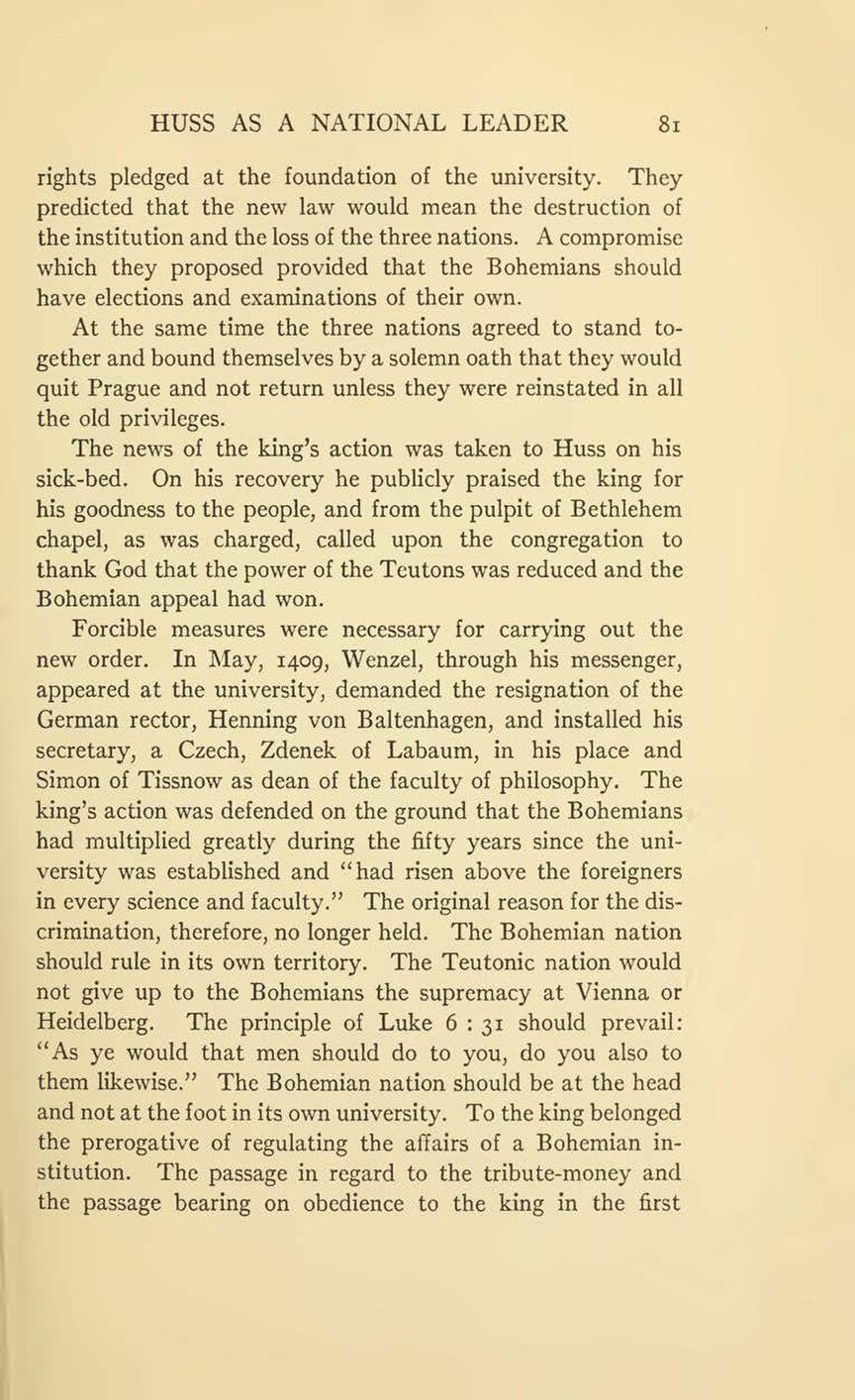rights pledged at the foundation of the university. They predicted that the new law would mean the destruction of the institution and the loss of the three nations. A compromise which they proposed provided that the Bohemians should have elections and examinations of their own.
At the same time the three nations agreed to stand together and bound themselves by a solemn oath that they would quit Prague and not return unless they were reinstated in all the old privileges.
The news of the king’s action was taken to Huss on his sick-bed. On his recovery he publicly praised the king for his goodness to the people, and from the pulpit of Bethlehem chapel, as was charged, called upon the congregation to thank God that the power of the Teutons was reduced and the Bohemian appeal had won.
Forcible measures were necessary for carrying out the new order. In May, 1409, Wenzel, through his messenger, appeared at the university, demanded the resignation of the German rector, Henning von Baltenhagen, and installed his secretary, a Czech, Zdenek of Labaum, in his place and Simon of Tissnow as dean of the faculty of philosophy. The king’s action was defended on the ground that the Bohemians had multiplied greatly during the fifty years since the university was established and “had risen above the foreigners in every science and faculty.” The original reason for the discrimination, therefore, no longer held. The Bohemian nation should rule in its own territory. The Teutonic nation would not give up to the Bohemians the supremacy at Vienna or Heidelberg. The principle of Luke 6: 31 should prevail: “As ye would that men should do to you, do you also to them likewise.” The Bohemian nation should be at the head and not at the foot in its own university. To the king belonged the prerogative of regulating the affairs of a Bohemian institution. The passage in regard to the tribute-money and the passage bearing on obedience to the king in the first
